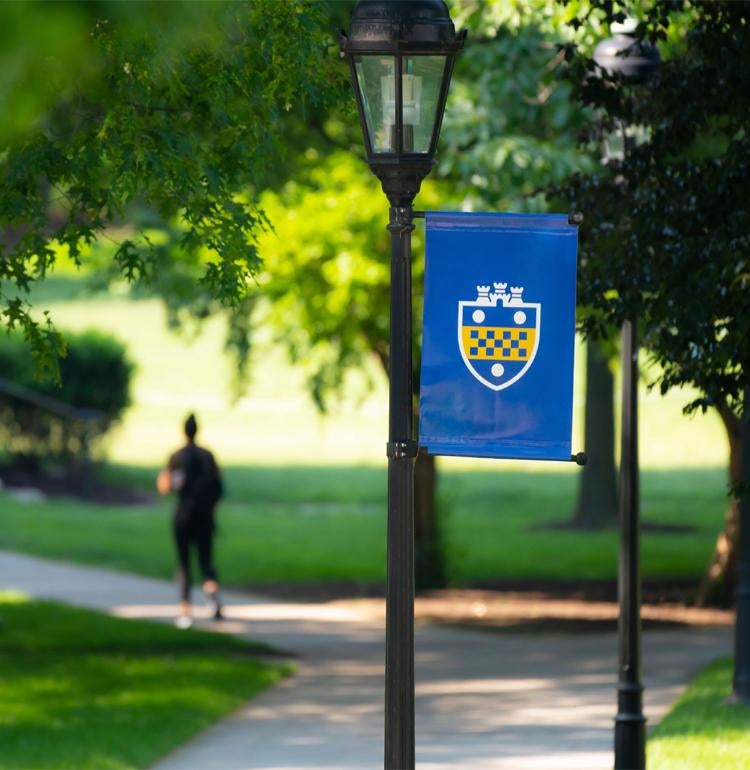The focus on social work practice with older adults has been in place at the School of Social Work since 1980 and continues to attract numerous MSW students. The goals of the DP-Gerontology Certificate are to enhance students’ understanding of the aging process and to provide them with the specialized skills relevant to practice with and/or on behalf of older adults and their family members. Knowing how to work with older adults and their family members as a social work professional offers many opportunities in an era when that segment of the population continues to increase rapidly.
Through courses and a specialized practicum placement experience, DP-Gerontology Certificate students are exposed to the various roles and settings that constitute contemporary social work practice with older adults and their family members. Emphasis is given to understanding client and family strengths; diversity among the older population; the social, cultural, community, and policy contexts of aging; and how these factors inform, and may be influenced by, social work practice.
This certificate is available only to students currently enrolled in the University of Pittsburgh’s School of Social Work’s MSW Program Pittsburgh campus and online students. MSW students complete required and elective courses along with specialized field work leading to the DP-Gerontology Certificate within the normal MSW requirements and need not exceed the length of the degree program. As a University of Pittsburgh-recognized certificate program, receipt of the DP-Gerontology Certificate appears on graduates’ MSW diplomas.
A COSA-Gerontology Certificate is available to Pitt-Main MSW students completing the COSA specialization. Read more information about the COSA Gerontology Certificate program.
DP-Gerontology Certificate Curriculum
Required Courses
To earn the DP-Gerontology Certificate, students must fulfill all MSW Program and Direct Practice requirements as well as specific courses that support the certificate. Therefore, in addition to completing Direct Practice with Individuals (SWINT 2020), Direct Practice with Families and Groups (SWINT 2021), a second-level Research course (SWRES 2040), and two electives, students seeking the DP-Gerontology Certificate must take:
SWBEH 2077 | Human Behavior: Adult Development & Aging (second-level Human Behavior)
SWWEL 2039 | Social Policy & Gerontology (second-level Social Welfare)
SWINT 2030 | Direct Practice with Older Adults (Direct Practice skill elective required for the certificate)
Students pursuing the DP-Gerontology Certificate also must complete a second Direct Practice skill elective course relevant to practice with older adults and their family members from the following approved list*:
SWINT 2004| Grief and Loss: Interventions, Implications & Understanding
Or
SWINT 2007 | Introduction to Psychopharmacology and Social Work Practice
*With advanced permission from the Certificate Chair, SWINT 2011, SWINT 2042, or SWINT 2073 may be substituted for SWINT 2004/SWINT 2007.
Review sample course of study models for the DP-Gerontology Certificate.
Required Practicum Work
Students pursuing the DP-Gerontology Certificate must complete their specialized practicum placements (SWINT 2099; 12 credits - 720 clock hours) in a program, unit, or agency that has a primary focus on aging. Direct Practice students work directly with older adults and their families. Placement options include, but are not limited to, long-term facilities, hospitals, hospices, area agencies on aging, community-based family service agencies, senior centers, residential settings, mental health settings, advocacy organizations, and community-based specialized day health centers that have activities relevant to the student’s specialization.
Certificate Declaration Form
If not already declared as part of the admission application, an MSW student should submit a Certificate Declaration of Intent Form as soon as possible after beginning the MSW Program to affirm their interest in pursuing the DP-Gerontology Certificate as part of their MSW studies.
Financial Aid
Students pursuing the DP-Gerontology Certificate are eligible for the same financial aid and loan options available to all MSW students. In addition, DP-Gerontology Certificate students are encouraged to apply to the Hartford Program Partnership in Aging Education Fellowship.
Career Opportunities
MSW graduates who completed the DP-Gerontology Certificate have gone on to pursue diverse careers providing direct practice services to older adults and their family members. Graduates are employed, for example, by hospitals, the Veteran’s Administration, hospice agencies, senior centers, mental health counseling providers, intensive case management agencies, residential facilities, foundations, and community-based services organizations, working directly with older adults as well as with family members in support of older adults. Regardless of employment setting, graduates draw on their specialized direct practice knowledge and skills to ensure that older adults and their family members receive high quality services.
SSW Resources
The long, rich history of the MSW Program’s focus on gerontology has created an array of unique learning opportunities for current students. There are dedicated faculty whose focus and passion are to enhance the lives of older adults through their research, teaching, and advocacy. Special experiential trainings, such as the Ageless Wisdom program, give students not only advanced preparation, but also the experience of “being” an older adult through simulation exercises. There is a wealth of practicum placement opportunities available to DP-Gerontology Certificate students; they also can avail themselves of unique university and community interdisciplinary training and fellowship opportunities, such as those from the Jewish Healthcare Foundation and the Schools of Medicine and Pharmacy. The School of Social Work serves as the research wing of Age-Friendly Greater Pittsburgh, an internationally recognized organization dedicated to making this region Pittsburgh and Allegheny County more inclusive and accessible for older adults.
